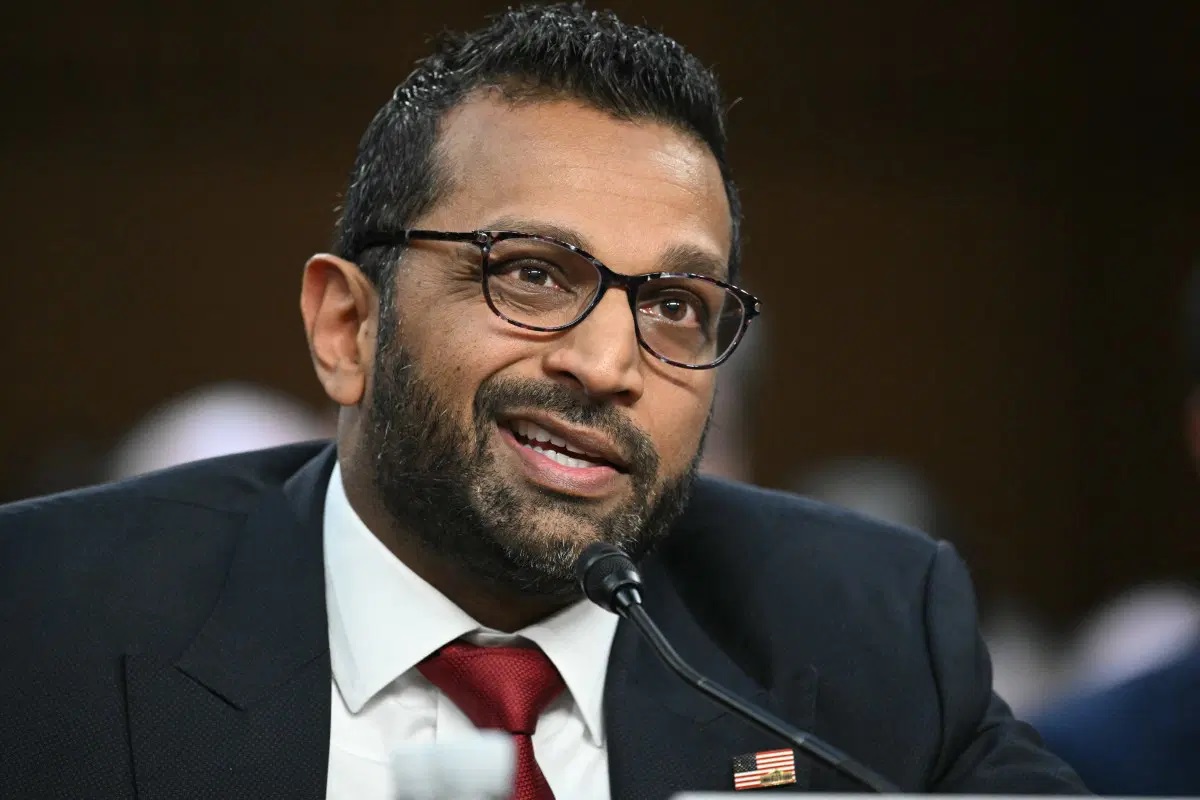Foreign
Six soldiers k!lled as army wastes 17 bandits

A weekend attack killed six Beninese soldiers with the army having “neutralised” 17 unnamed assailants in response, a military source said on Monday.
Observers are increasingly worried about violence in neighbouring Niger and Burkina Faso, both battling long-entrenched jihadist insurgencies, spilling into the coastal west African country.
“We lost six men and we neutralised 17,” a senior army official told AFP, adding that the military was “combing the W National Park” in response.
The Saturday afternoon attack took place in the Beninese town of Karimama, located in the nature reserve which extends across the porous Niger and Burkina Faso borders.
Attacks in northern Benin have increased in recent years with authorities blaming members of the Islamic State group and Al-Qaeda-linked jihadists based across the border.
A diplomatic source told AFP last month that 121 Beninese military personnel had been killed between 2021 and December 2024.
“The more the situation in Niger and Burkina Faso deteriorates, the harder it gets for Benin,” the source added.
In January, an attack in the Pendjari National Park near the borders of Niger and Burkina Faso killed 28 Beninese soldiers.
The incident was later claimed by the Al-Qaeda-linked Group to Support Islam and Muslims (JNIM).
Gunmen in December killed three soldiers and wounded four others who were guarding an oil pipeline in northeast Benin.
Benin in January 2022 deployed nearly 3,000 troops to secure its borders as part of Operation Mirador.
The country’s authorities also recruited 5,000 additional personnel to reinforce security in the north.
Last week, Benin’s defence ministry announced new measures for soldiers’ “psychological support”.
“It’s our collective responsibility to offer them the necessary resources so that they can pursue their mission in the best conditions possible, in total safety, both physically and psychologically,” said Colonel-Major Mathias Alizannon.
Foreign
Senate approves Trump’s ally, Patel as FBI boss

The Republican-controlled US Senate on Thursday confirmed Kash Patel, a staunch loyalist of President Donald Trump, to be director of the FBI, the country’s top law enforcement agency.
Patel, 44, whose nomination sparked fierce but ultimately futile opposition from Democrats, was approved by a 51-49 vote.
The vote was split along party lines with the exception of two Republican senators, Susan Collins of Maine and Lisa Murkowski of Alaska, who voted not to confirm Patel to head the 38,000-strong Federal Bureau of Investigation.
Patel drew fire from Democrats for his promotion of conspiracy theories, his defense of pro-Trump rioters who attacked the Capitol on January 6, 2021, and his vow to root out members of a supposed “deep state” plotting to oppose the Republican president.
The Senate has approved all of Trump’s cabinet picks so far, underscoring his iron grip on the Republican Party.
Among them is Tulsi Gabbard, confirmed as the nation’s spy chief despite past support for adversarial nations including Russia and Syria, and vaccine skeptic Robert F. Kennedy Jr. to be health secretary.
Democratic Senator Dick Durbin, in a last-ditch bid to derail Patel’s nomination, held a press conference outside FBI headquarters in downtown Washington on Thursday and warned that he would be “a political and national security disaster” as FBI chief.
Speaking later on the Senate floor, Durbin said Patel is “dangerously, politically extreme.”
“He has repeatedly expressed his intention to use our nation’s most important law enforcement agency to retaliate against his political enemies,” he said.
Patel, who holds a law degree from Pace University and worked as a federal prosecutor, replaces Christopher Wray, who was named FBI director by Trump during his first term in office.
Relations between Wray and Trump became strained, however, and though he had three more years remaining in his 10-year tenure, Wray resigned after Trump won November’s presidential election.
– ‘Enemies list’ –
A son of Indian immigrants, the New York-born Patel served in several high-level posts during Trump’s first administration, including as senior director for counterterrorism on the National Security Council and as chief of staff to the acting defense secretary.
There were fiery exchanges at Patel’s confirmation hearing last month as Democrats brought up a list of 60 supposed “deep state” actors — all critics of Trump — he included in a 2022 book, whom he said should be investigated or “otherwise reviled.”
Patel has denied that he has an “enemies list” and told the Senate Judiciary Committee he was merely interested in bringing lawbreakers to book.
“All FBI employees will be protected against political retribution,” he said.
The FBI has been in turmoil since Trump took office and a number of agents have been fired or demoted including some involved in the prosecutions of Trump for seeking to overturn the 2020 election results and mishandling classified documents.
Nine FBI agents have sued the Justice Department, seeking to block efforts to collect information on agents who were involved in investigating Trump and the attack on the Capitol by his supporters.
In their complaint, the FBI agents said the effort to collect information on employees who participated in the investigations was part of a “purge” orchestrated by Trump as “politically motivated retribution.”
Trump, on his first day in the White House, pardoned more than 1,500 of his supporters who stormed Congress in a bid to block certification of Democrat Joe Biden’s election victory.
Foreign
EU diplomat bombs Trump over dictator comment on Zelensky, points at Putin

The EU’s top diplomat said Thursday she had initially thought US President Donald Trump had confused Volodymyr Zelensky with Vladimir Putin when he called the Ukrainian leader a “dictator”.
“First when I heard this, I was like, oh, he must be mixing the two, because clearly Putin is the dictator,” Kaja Kallas told reporters in Johannesburg.
In a post on his Truth Social platform Wednesday, Trump wrote that Zelensky was a “dictator without elections”.
Zelensky’s five-year term expired last year but Ukrainian law does not require elections during war-time.
“Zelensky is an elected leader in fair and free elections,” Kallas said in a briefing after attending a meeting of G20 foreign ministers.
The constitutions of many countries allow for elections to be suspended during wartime in order to focus on the conflict, she said.
Russia, which attacked Ukraine in 2022, could choose to hold free elections but “they are afraid of democracy expanding because in democracy, the leaders are held accountable,” the EU foreign policy chief said.
“It’s literally from the dictator’s handbook.”
Trump has rattled Ukraine and its European backers by opening direct talks with Moscow on ending the war but excluding Kyiv and European countries.
Kallas said the focus should remain on supporting Ukraine and putting political and economic pressure on Russia.
The stronger Ukraine is on “the battlefield, the stronger they are behind the negotiation table,” she said, adding, “Russia doesn’t really want peace.”
It was also premature to talk about sending troops to protect Ukraine after any ceasefire deal with Russia, Kallas said.
Rather, Ukraine needed concrete security guarantees that Russia would not attack again, she said, adding that history had shown that ceasefires had only been opportunities for Russia “to regroup and rearm.”
AFP
Foreign
EU slams Russia with fresh sanctions

EU countries on Wednesday agreed to a new round of sanctions on Russia, diplomats said, as the bloc looks to keep up pressure in the face of US talks with Russia.
The wide-ranging package — which includes a ban on imports of Russian aluminum — will be formally adopted by EU foreign ministers on Monday, the third anniversary of the Kremlin’s invasion of Ukraine.
The EU’s 16th round of sanctions on Russia comes as US President Donald Trump has undercut Kyiv and its European backers by launching efforts with Russia’s Vladimir Putin to end the war.
“The EU is clamping down even harder on circumvention by targeting more vessels in Putin’s shadow fleet and imposing new import and export bans,” European Commission president Ursula von der Leyen wrote on X.
“We are committed to keeping up the pressure on the Kremlin.”
Beyond targeting Russia’s lucrative aluminium sector, the new measures target the so-called “shadow fleet” used to skirt restrictions on Russian oil exports by blacklisting 73 more ageing vessels.
The EU will also disconnect a further 13 Russian banks from the global SWIFT payment system and ban a further eight Russian media outlets from broadcasting in Europe.
Europe is scrambling to react after Trump upended three years of staunch US support for Kyiv by starting talks with Moscow.
Top US officials and Russian negotiators held a first meeting in Saudi Arabia on Tuesday to pave the way towards reaching a deal on Ukraine.
European countries are urgently trying to make their voices heard as they fear a bad deal could leave an emboldened Moscow claiming victory.
The US has said that the EU will eventually have to play a role in the talks due to the sanctions it has imposed on Russia.
AFP
-

 News17 hours ago
News17 hours agoInsecurity! Ex-presidential Candidate Reportedy Shot, Abducted in Abuja
-

 News24 hours ago
News24 hours agoFG dumps RCC’s Oyo-Ogbomoso road contract
-

 News23 hours ago
News23 hours agoMURIC Kwara Chapter Calls For Probe to Unearth K!llers of Hafsoh Yetunde Lawal
-

 News17 hours ago
News17 hours agoPastor Adeboye reveals how lady who claimed God asked her to marry me threatened to k!ll my wife
-

 News13 hours ago
News13 hours agoWhat marabout told us about IBB in 1952- Gen Abdulsalami reveals
-

 News13 hours ago
News13 hours agoFG to hold promotion exam for senior paramilitary officers
-

 News23 hours ago
News23 hours agoDangote donates N8bn towards IBB Presidential Library, Rabiu, Danjuma, others
-

 News17 hours ago
News17 hours ago“I will advise Trump not to be weak with Putin – Macron















